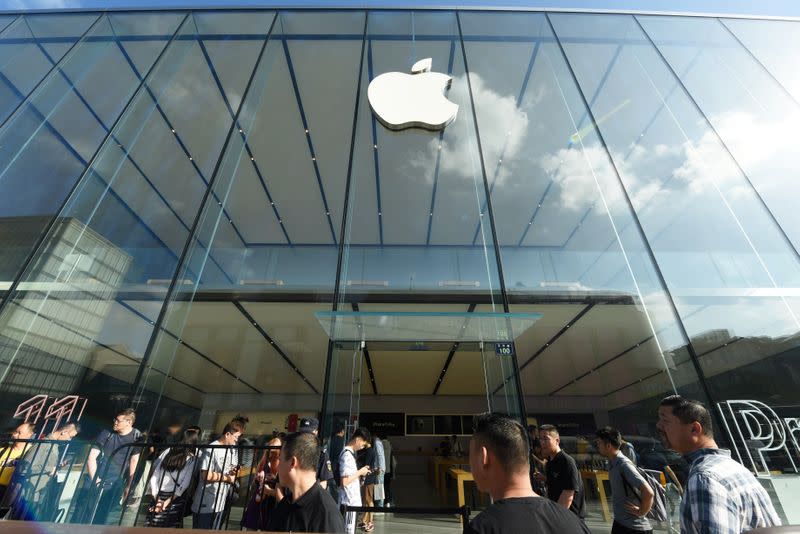Apple's iPhone strength is back and analysts say it is here to stay
(Reuters) - Wall Street analysts were smitten by a rebound in sales of Apple Inc's iPhones after a year of decline and said strong demand for new models, spurred by trade-in programs and heavy discounts on older models, will drive growth this year.
At least 15 brokerages raised their price targets on the company's stock on Wednesday, with D.A. Davidson setting the most bullish price target of $385 (£295.9), well above the stock's current median price target of $325.
Sales were boosted by the first full quarter of iPhone 11, which is priced $50 less than its iPhone XR predecessor, said Gene Munster, a longtime Apple watcher and managing partner at Loup Ventures.
Shares of the company rose 3% to a record high of $327.25 in early trading, providing the biggest boost to the benchmark S&P 500 index.
"We see Apple's December 2019 quarter as a microcosm for its calendar 2020 performance, with the iPhone, once again, returning to the front and center," D.A. Davidson analyst Tom Forte said.
Forte attributed part of the iPhone sales bounce to Apple's new credit initiatives, which enable consumers to purchase a phone and pay for it in monthly installments without paying interest.
Investors have fretted over the long-term growth prospects of Apple's phone business, which has been facing increased competition from cheaper phones from Samsung and Huawei.
Oppenheimer analyst Rick Schafer said the widely touted release of a 5G iPhone later this year would likely boost demand.
Robust demand for iPhones and wearables, including AirPod wireless headphones, during the holiday season helped the company make up for weakness in its services revenue in the company's fiscal first quarter of 2020 reported on Tuesday.
The services business, which includes the Apple TV+ streaming service, iCloud storage and fees from app developers, has consistently grown over the past two years, reaching $12.7 billion in revenue in the quarter.
Cowen and Co analyst Krish Sankar noted that the services segment reached its $50 billion run rate target ahead of schedule, saying that the company's pivot to a content-focused recurring revenue model is a powerful long-term earnings driver.
Investors have become excited about services because they believe they will lead to durable profits: the services are sold as a subscription billed each month or year, with most consumers leaving them on autopilot, while a new phone or laptop is often a sporadic purchase every few years, subject to the whims of consumer sentiment.
(Reporting by Stephen Nellis in San Francisco and Aakash Jagadeesh Babu in Bengaluru; Editing by Sweta Singh and Saumyadeb Chakrabarty)

 Yahoo News
Yahoo News 

